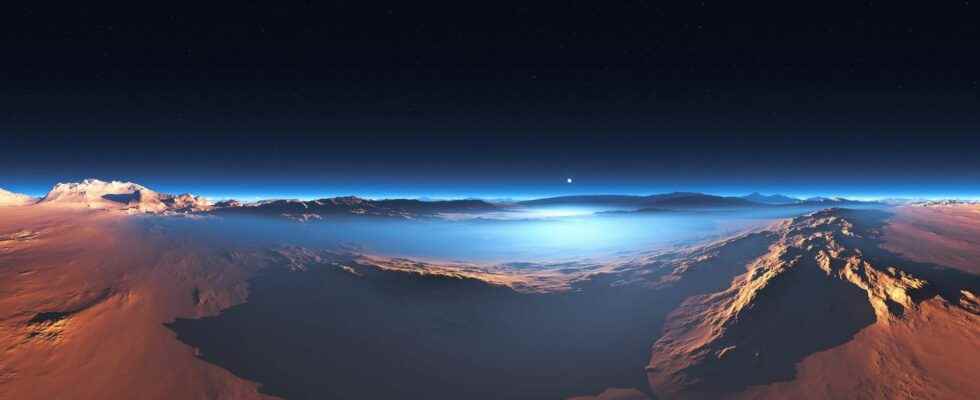Liquid water on the surface of Mars has gradually disappeared in its past as the planet changed its climate and cooled. Under these conditions, large glaciers should have formed, but scientists have not yet found any traces of them. A new study argues that they did exist.
You will also be interested
[EN VIDÉO] 15 things to know about Mars While 3 missions are currently on their way to Mars, we invite you to learn a little more about the red planet. Here are 15 things to know about Mars.
Our neighbor Mars has multiple evidence of the presence of water on its surface dating back billions of years. However, while it is expected that ice occupied thesouthern hemisphere of the planet, no trace of it can be found in the geological records that outcrop. The apparent absence on the Red Planet of these characteristic glacial landscapes, which on Earth occupy massive areas in northern Europe and North America, has led scientists to believe that the glaciations on a large scale never occurred on Mars, or were not associated with water.
There would have been glaciers on Mars
A new study, led by Anna Grau Galofre, from the Laboratory of Planetology and Geosciences (CNRS/University of Nantes/Le Mans/University of Angers), questions this hypothesis and shows that the layers of ice on Mars probably moved and eroded at extremely slow rates, even when water had accumulated under the ice.
To reach this conclusion, she adapted to Martian conditions the existing physical framework that describes the drainage of water accumulated under the Earth’s ice sheets, coupled with the dynamics of ice movement. With her co-authors, she considered the dynamics of two equivalent layers of ice on Earth and on Mars, with the same thickness, the same temperature and the same availability of subglacial water, in order to determine whether the subglacial drainage would evolve into efficient or inefficient configurations on Earth and Mars, and what effect this would have on the glacial slip rate and theglacial erosion. Thus, on Mars, The glaciers will not produce morphologies subglacial although they exist and their extension was important.
This work has therefore enabled the interpretation of the glacio-geological record on Mars, and aims to improve the understanding of ancient Martian glaciations, such as those covering the southern circumpolar region a billion years ago.
Interested in what you just read?
